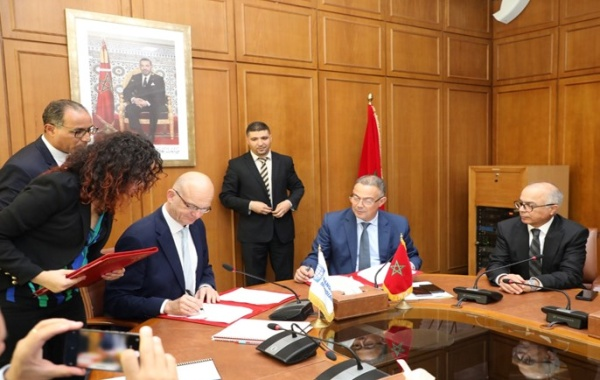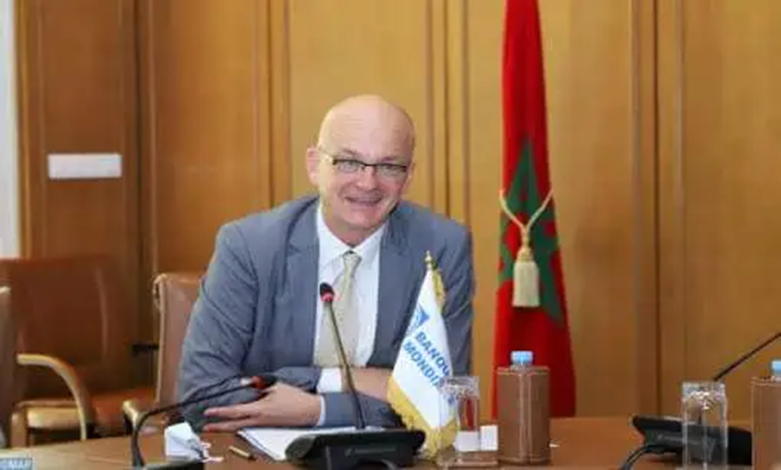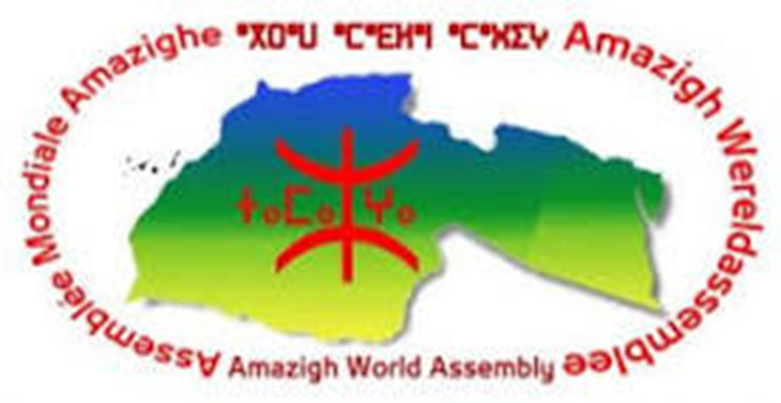The “World Bank” responds to the “International Amazigh Rally” and refers the Amazigh teaching file to the Ministry of National Education

The Regional Director of the Maghreb and Malta Department of the World Bank, Jesco Henschel, responded to the letter in which he called on the head of the Amazigh World Assembly, Rachid Rakha, to “teach the Amazigh language to save school and early childhood in Morocco.”
“This financial support aims to support the Moroccan government in implementing the education reform program, which includes expanding education services during the early childhood stage, supporting the foundations of primary and secondary education, and strengthening management capabilities And the responsibility of management to achieve the best results of the learning process. This program also aims, the World Bank official adds, to “provide solutions to complex problems, to improve the quality of educational services and care for children at the age of 4, to enhance their cognitive, social and emotional achievement.”

He stated that the program supports three areas, related to “improving the quality of kindergartens by establishing a regulatory framework for better care in addition to setting educational standards,” and “supporting the strengthening of the teaching profession through improving supervision, training and training, in addition to motivation and improving working conditions for teachers.” It also aims to “strengthen administrative capacities at all levels in accordance with the principles of decentralization of functions to give more powers to regional academies and local directorates.”
In his response to the head of the International Amazigh Organization, the Regional Director of the Maghreb and Malta Department of the World Bank indicated that this program “does not matter the linguistic considerations that you have chosen,” stressing that “the World Bank will send the message of the Amazigh World Assembly to the Ministry of National Education, Primary Education and Sports, As the ministry concerned with implementing these reforms.” Referring to the reforms referred to in the text of the letter.
The President of the Amazigh World Rally, Rachid Rakha, said in his message following the recent approval by the International (BM) of an additional funding of $250 million to fund the Education Support Program in Morocco, which aims to support the implementation of an ambitious education reform program, related to young childhood and primary and secondary education. Unfortunately, this ambitious and necessary program will inevitably be doomed to failure. And this funding, it will be just a continuation of the process of pouring water in the sand.”

Al-Rakha called for expediting “the generalization of the teaching of the Amazigh language in the elementary and primary education stages, while waiting for it to include the secondary stage,” considering that “this is the most effective and appropriate way to save schools and childhood in Morocco.”
This is the text of the message that the Regional Director of the Maghreb Region and Malta Department of the World Bank, Jesko Henschel, promised to transmit to the Ministry of National Education, Primary Education and Sports:
The Amazigh World Assembly

To His Excellency Mr. Jesko Henschel
Regional Director of the Maghreb and Malta Department of the World Bank
Subject: Teaching the Amazigh language to save schools and early childhood in Morocco
Your Excellency the Director,
Your International Bank (BM) has recently approved an additional financing of $250 million to fund the Education Support Program in Morocco, which aims to support the implementation of an ambitious education reform program related to young childhood and primary and secondary education(1). The agreement was signed with you by the Minister Delegate in Charge of the Budget, Mr. Faouzi Lekjaa and the Minister of National Education, Chakib Benmoussa, in Rabat on Wednesday (April 5th). In this regard, you stated that “this additional financing supports the activation of the new development paradigm, specifically the strategic road map for education led by the Ministry of National Education, Primary Education and Sports. The roadmap uses a three-pronged approach involving pupils, teachers and educational institutions to implement a reform agenda that has a tangible impact on both the learning environment and governance and ultimately on learning outcomes” (2).
Allow me to be frank with you, as I expressed in my previous correspondence to the World Bank Vice President for the Middle East and North Africa, Mr. Farid Belhaj, and to you personally (3), that this ambitious and necessary program will, unfortunately, inevitably be doomed to a catastrophic failure. This funding will be just a continuation of the process of pouring water in the sand. Why?
Mr. Farid Belhaj, who calls on the countries of the Middle East and North Africa (MENA) region to begin to devote themselves, today more than ever, to concern for the future of future generations, insists on the necessity of learning, starting with reading, writing and the principles of arithmetic until acquiring basic skills and critical thinking Where he emphasized that: “The percentage of children who are unable to read and understand a simple text at the age of ten has reached 60%, an unacceptable number, which is an alarming number” (4). According to the statements of the current Minister of National Education, affiliated with the National Rally of Independents, Mr. Chakib Benmoussa, this learning poverty rate has unfortunately risen to 76% and about 330,000 schoolgirls and boys drop out of school annually. Worse, at least 4.3 million young women and men between the ages of 15 and 34 are out of school, training and the labor market, according to what was announced by the President of the Economic, Social and Environmental Council, Mr. Ahmed Reda Al-Shami, in February 2023 (5). .
Allow me, if I insist, to draw your attention for the third time. In doing so, the aim is to inform you, once again, of the potential and regrettable waste of the precious financial resources allocated by your bank to the Moroccan school, as we do not in any way want the fate of this educational program to support early childhood as the fate of the “urgent program 2009-2012.” “During the era of the former minister belonging to the Authenticity and Modernity Party, Mr. Ahmed Akhsheshin, who was recognized by the Supreme Council of Accounts as responsible for wasting a huge budget of 3.3 billion dirhams, from which the Moroccan school did not benefit even one iota (6)!

Let me express to you our complete refusal to allow the so-called “political officials” to continue playing with the future of our children, and exploiting them in educational projects that are presented as serving noble goals, but in fact hide malicious ideological goals, through their insistence on continuing to implement a policy An obsessive and destructive “ideological Arabization” since Morocco’s independence in 1956, which I explicitly denounced in my correspondence to UNESCO (7) and in my recent report on the close relationship between poverty and ignoring the Amazigh issue (8). . The Amazigh World Assembly is strongly opposed to diverting your financial resources to serve religious missionary goals, as I discovered in some educational books intended for children from 4 to 5 years (9), similar to the previous Islamist governments of the Justice and Development Party, which benefited from European Union funds to implement the same goals Through programs to teach reading and writing for adults (10).
Whatever the case, I can assure you that the reform of Minister Ben Moussa's new roadmap 2022-2026 is inevitably doomed to failure (11) for the simple reason that he absolutely does not respect the recommendations or principles of your institution, the World Bank. As Jaime Saavedra, World Bank Global Practice Director for Education, emphasized very clearly, “The message is loud and clear. Children learn best when they are taught in a language they understand, and this provides the best basis for learning in a second language. A deep and inequitable learning crisis requires good action. Investments in education systems around the world will not result in significant improvements in learning if pupils do not understand the language they are learning. It is possible to make significant improvements in reducing learning poverty by teaching children the language they speak at home”(12).
However, fortunately in North Africa, in Morocco in particular, there is an exemplary and commendable experience, which was marked by the successful results it achieved, which is represented in the communal schools “Medersat.com” affiliated to the Bank of Africa Foundation, (- which we invite you to visit and learn about closely), why? Because this institution is simply the only one that implements the new approach and the five principles that were adopted by the World Bank in July 2021 in terms of the language of instruction (13), and they have been actually applied twenty years ago:
Principle 1: Teach children in their first language starting with early childhood education and care services through at least the first six years of primary education. It is essential that instruction be provided in the language most learners speak and best understand.
Principle 2: Using the student's first language in teaching academic subjects after learning to read and write. Learners need to be proficient in reading and writing in a wide range of disciplines and in all subjects.
Principle 3: If pupils are to learn a second language in primary school, it is taught as a foreign language with an initial focus on oral language skills.
Principle 4: Continue first language instruction even after the second language becomes the main language of instruction. First language instruction continues to significantly improve second language performance, even after the latter becomes the language of instruction.
Principle 5: Plan, develop, adapt, and continually improve the implementation of effective language policies for education, in line with individual country context and educational objectives.

In conclusion, if we wish at all costs to avoid continuing to pour water into the sand, our legitimate demand is manifested, as it was expressed to Mr. Draw the attention of the educational authorities in the Kingdom of Morocco, and ask them to respect the recommendations and principles of your respected institution, the World Bank.
We aspire for the current minister to be realistic, pragmatic and effective in order to pursue a voluntary and strict policy against this racial discrimination against the official, national and mother language, which is the Amazigh language, if we all want to culminate in the reform goals of the new road map 2022-2026, supported by your huge funding ( 750 million dollars), as well as financing by the European Investment Bank (EIB) and the European Union (102.5 million euros) (15), with the expected positive results. In addition, this policy would inevitably contribute to the success of the International Decade of Indigenous Languages 2022-2032, ( www.unesco.org/fr/decades/indigenous-languages ), officially launched by UNESCO on December 13, 2022, and ensure The survival of the original Amazigh language striking in the foot.
In conclusion, accelerating the generalization of the teaching of the Amazigh language in the elementary and primary education stage, while waiting for it to include the secondary stage, is the most effective and appropriate way to save schools and childhood in Morocco (16).
Accept the utmost appreciation and respect.
Signed by Mr. Rashid Rakha
President of the Amazigh World Assembly
Source : websites

